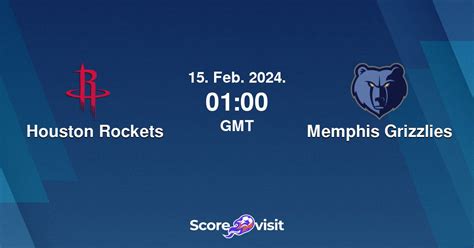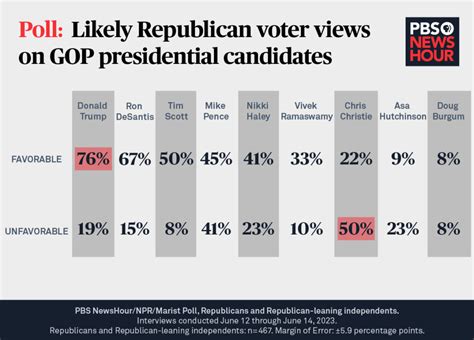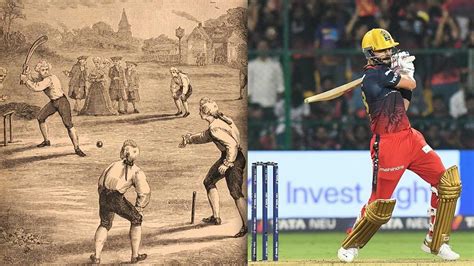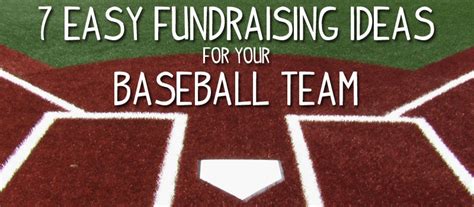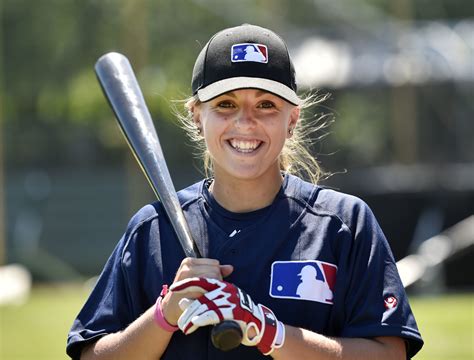Explore essential baseball nutrition tips, key nutrients, meal timing strategies, hydration methods, and guidelines to create a personalized nutrition plan for peak performance.In the competitive world of baseball, optimizing performance hinges not just on skill and technique, but also on nutrition. Baseball Nutrition: What To Eat For Peak Performance delves into the essential dietary guidelines that can elevate an athlete’s game. From understanding the fundamentals of baseball nutrition to identifying key nutrients vital for success, this article covers every aspect of dietary planning tailored for players. Whether you’re looking to maximize energy levels with strategic meal timing or enhance your performance through effective hydration strategies, the right nutrition can be a game-changer. Additionally, we’ll guide you in crafting a personalized nutrition plan designed specifically for your needs. Join us as we explore the critical relationship between food and athletic excellence in the world of baseball.
Understanding The Basics Of Baseball Nutrition For Athletes
When it comes to Baseball Nutrition, understanding the fundamental needs of your body is crucial for optimizing performance on the field. Unlike general nutrition, which can cater to a variety of lifestyles, the dietary requirements for baseball athletes should be tailored to support strenuous physical activity and ensure recovery.
Firstly, it’s essential to recognize the energy demands of playing baseball. Athletes require a diet rich in calories from quality sources to fuel their workouts and games. Carbohydrates are the primary energy source, making it necessary to include whole grains, fruits, and vegetables in your daily meals. These foods will provide the glycogen stores needed for endurance and explosive movements.
Protein plays a significant role as well, assisting in muscle repair and growth. Athletes should aim for a balanced intake from lean meats, dairy, legumes, and nuts to support recovery after intense training sessions or games. Incorporating healthy fats into your diet is also vital, as they are a dense energy source and support overall cellular functions.
Moreover, understanding the timing of meals and snacks can dramatically affect performance. Consuming a nutritious meal several hours before a game can help maintain energy levels, while post-game nutrition is crucial for recovery. Additionally, frequent smaller meals throughout the day can keep energy levels stable and prevent fatigue.
Mastering the basics of Baseball Nutrition involves a combination of proper meal planning, understanding energy requirements, and recognizing the body’s needs before, during, and after performing. Doing so will not only help athletes perform at their best but also promote long-term health and wellness.
Key Nutrients Essential For Peak Baseball Performance
To achieve peak performance in baseball, athletes must focus on their Baseball Nutrition by incorporating key nutrients into their diet. These nutrients not only help fuel the body but also aid in recovery and overall health. Below are the essential nutrients that every baseball player should prioritize:
| Nutrient | Function | Food Sources |
|---|---|---|
| Carbohydrates | Provide energy for high-intensity activities and are crucial for glycogen replenishment. | Whole grains, fruits, vegetables, and legumes. |
| Proteins | Essential for muscle repair and recovery after training and competition. | Lean meats, poultry, fish, eggs, dairy, and plant-based proteins like beans and tofu. |
| Fats | Serve as a vital energy source and help in nutrient absorption. | Nuts, seeds, avocados, olive oil, and fatty fish. |
| Vitamins and Minerals | Support various body functions including immune health and energy production. | Fruits, vegetables, whole grains, and lean proteins. |
| Electrolytes | Help maintain fluid balance, nerve function, and muscle contraction. | Salt, potassium-rich foods like bananas, and hydration drinks. |
By ensuring adequate intake of these essential nutrients, athletes can optimize their Baseball Nutrition and enhance their performance on the field. Consistently incorporating these nutrients through meals and snacks is key to maintaining energy levels and achieving long-term success in baseball.
Meal Timing: When To Eat For Optimal Energy Levels
In the world of Baseball Nutrition: timing your meals effectively can significantly impact your performance on the field. Consistent energy levels throughout the day are crucial for athletes to sustain their performance during practices and games. Here’s how to optimize your meal timing:
- Pre-Game Fuel: Eating a balanced meal about 3 to 4 hours before a game is essential. This meal should include complex carbohydrates for sustained energy, lean protein for muscle repair, and healthy fats. Consider foods like grilled chicken with quinoa and steamed vegetables.
- Pre-Game Snack: A lighter snack about 30 to 60 minutes before the game can provide a quick energy boost. Ideal snacks include a banana, energy bars, or low-fat yogurt. Avoid high-fiber or high-fat foods right before play, as they can cause digestive discomfort.
- Post-Game Recovery: After playing, it’s critical to replenish energy stores and aid muscle recovery. Aim to consume a meal rich in protein and carbohydrates within 30 minutes post-game. Options include a protein shake with a banana or a chicken sandwich with whole-grain bread.
- Daily Meal Frequency: Instead of three large meals, consider eating smaller meals or snacks every 3 to 4 hours. This approach helps maintain energy levels and keeps your metabolism active, which is particularly beneficial for athletes.
By understanding the importance of meal timing in your Baseball Nutrition: plan, you can sustain energy levels and enhance your overall performance on the field. Keep in mind that every athlete is different, and it may take some experimentation to find what works best for you.
Hydration Strategies To Enhance Baseball Performance
Hydration plays a pivotal role in achieving optimal performance in baseball. Athletes must understand how to maintain adequate fluid levels to prevent dehydration and enhance their overall efficiency on the field. Here are several effective hydration strategies tailored for baseball players:
- Know Your Needs: Each athlete’s hydration needs may vary based on factors such as body weight, intensity of exercise, and environmental conditions. A general guideline is to drink at least 2-3 liters of water daily, but this may need to be adjusted based on personal sweat rates.
- Pre-Hydrate Before Games: It’s crucial to start games well-hydrated. Players should aim to consume 16-24 ounces of water or sports drink about 2-3 hours before a game.
- Set a Hydration Schedule: Establishing a regular hydration schedule during practices and games can ensure that fluid intake is consistent. For instance, sipping water or a sports drink every 15-20 minutes during play can help maintain hydration levels.
- Monitor Urine Color: A simple way to gauge hydration is by observing the color of urine. Light yellow typically indicates proper hydration, while dark yellow may signal the need for more fluids.
- Incorporate Electrolytes: Especially during prolonged matches or in hot weather, incorporating electrolytes—such as sodium, potassium, and magnesium—can replace lost minerals and help maintain hydration balance. Sports drinks can be effective in achieving this.
- Hydrate After Activity: Post-game hydration is equally important. Aim to consume fluid equivalent to what was lost through sweat. This can be estimated by weighing players before and after the game to determine how much fluid they need to replace.
By implementing these hydration strategies, players can enhance their performance on the field and better support their overall Baseball Nutrition plan. Staying hydrated isn’t just about drinking water; it’s about ensuring that your body is prepared to perform at its best.
Creating A Customized Baseball Nutrition Plan For Success
Developing a personalized Baseball Nutrition plan is crucial for athletes who want to maximize their performance on the field. This plan should take into consideration various factors, including training intensity, body composition, individual preferences, and any potential food intolerances. Here are some essential steps to create an effective nutrition plan:
- Assess Personal Needs: Start by evaluating your current dietary habits and physical requirements. Consider your age, weight, position, and the level of competition you are in. This assessment provides a baseline from which to build your plan.
- Macronutrient Ratios: Tailor your macronutrient intake—carbohydrates, proteins, and fats—to your specific needs. Generally, baseball players benefit from a higher carbohydrate intake for energy, moderate protein for muscle recovery, and healthy fats for overall health.
- Include Variety: Incorporate a wide range of foods to ensure you receive all necessary vitamins and minerals. Focus on whole foods like fruits, vegetables, lean meats, whole grains, and dairy products to provide a balanced diet.
- Pre-Game and Post-Game Meals: Develop specific meals for pre- and post-game. Pre-game meals should be rich in carbohydrates to fuel your energy levels, whereas post-game meals should help in muscle repair with protein-rich options.
- Snacking Smart: Choose healthy snacks between meals to keep energy levels stable. Nuts, fruit, yogurt, and protein bars can provide the necessary fuel while preventing energy dips.
- Monitor and Adjust: Keep track of your performance and how you feel during games and practices. Make adjustments to your plan based on feedback from your body, such as energy levels and recovery times.
Incorporating these steps into a Baseball Nutrition plan will support your athletic performance and overall health. Remember, a customized approach is key, and it may be beneficial to consult a sports nutritionist for personalized advice and guidance.
Frequently Asked Questions
Why is nutrition important for baseball players?
Nutrition provides the necessary energy, aids in recovery, and supports overall physical health, which are all critical for optimal performance on the field.
What are some essential nutrients that baseball players should focus on?
Baseball players should focus on carbohydrates for energy, proteins for muscle repair, healthy fats for overall health, as well as vitamins and minerals for immune support and recovery.
How can carbohydrates benefit a baseball player’s performance?
Carbohydrates are the primary source of energy for athletes; they help fuel workouts, sustain endurance, and support the high-intensity bursts required during games.
Are there specific foods that baseball players should avoid?
Yes, players should limit processed foods high in sugar, unhealthy fats, and excessive sodium, as these can lead to weight gain, sluggishness, and increased injury risk.
What role does hydration play in a baseball player’s diet?
Hydration is crucial for maintaining performance, regulating body temperature, and preventing dehydration, which can impair physical capabilities and cognitive functions.
How can meal timing optimize performance for baseball players?
Eating meals and snacks at strategic times, such as before practice or games, can ensure players have sufficient energy reserves, enhance endurance, and promote quicker recovery.
What are some healthy snack options for baseball players during games?
Healthy snacks include bananas, energy bars, trail mix, Greek yogurt, or low-sugar protein shakes, which provide quick energy without causing digestive discomfort.


